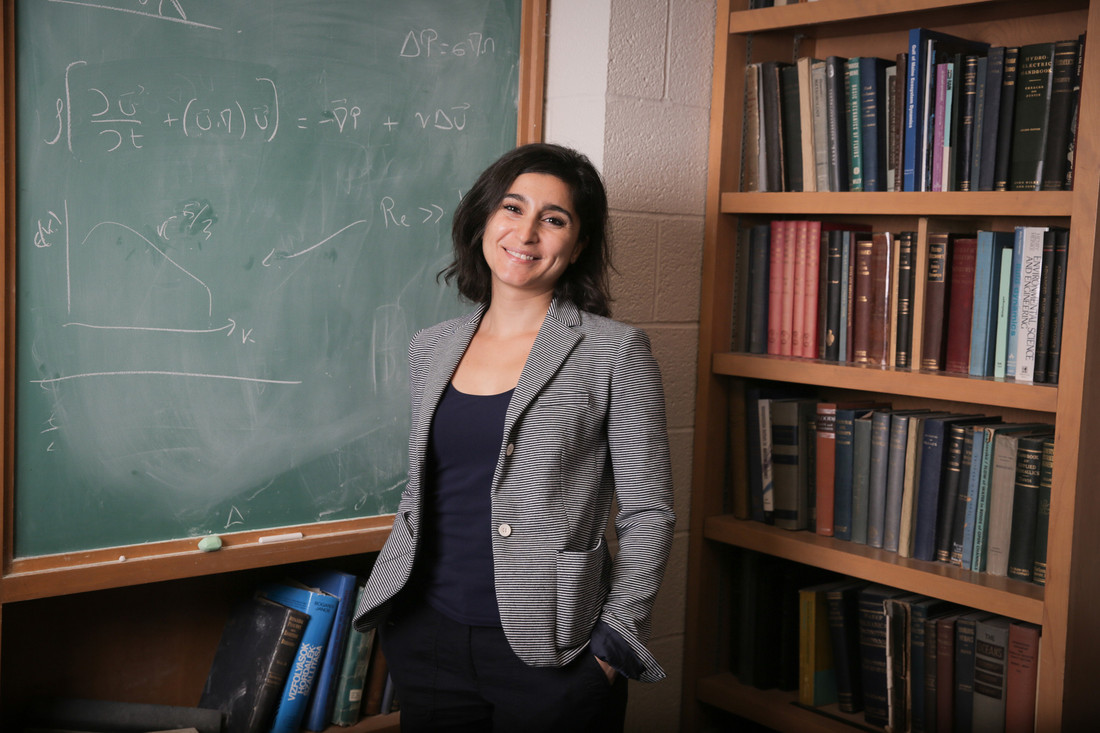
MIT Associate Professor Lydia Bourouiba
credit: Tony Pulsone
Award is part of a larger, multipdisciplinary team grant to study biophysics of tuberculosis transmission
MIT Civil and Environmental Engineering
MIT Associate Professor Lydia Bourouiba, an HST faculty member, is part of a multi-institutional and multi-disciplinary team that received $16 million from the National Institutes of Health – National Institute of Allergy and Infectious Diseases to study the transmission aerobiology of Mycobacterium tuberculosis.
Before COVID-19, mycobacterium tuberculosis (Mtb), the causative agent of tuberculosis (TB), killed more people than any other infectious disease each year. This is due, in large part, to TB’s ability to spread from person to person through air with an estimated infectious dose as low as one single organism. “Knowledge of the detailed physical, chemical, and biological conditions promoting Mtb’s successful transmission through air from one host to another, however, remains surprisingly sparse,” says Bourouiba—associate professor, MIT Department of Civil and Environmental Engineering, Mechanical Engineering, and an affiliate faculty member at the MIT Institute for Medical Engineering and Science (IMES)—who joins a team of investigators from Weill Cornell Medicine on this Program Project Grant. IMES is HST's home at MIT.
The project seeks to lay a basic-science foundation for new potential transmission blocking interventions by bringing a synergistic combination of investigators and disciplines together. The specific goals of this work are to characterize fundamental aspects of the fluid physics of host-to-host transmission, elucidate Mtb’s associated microbiology and develop new animal models of transmission.
Bourouiba’s project will use applied mathematics, rheology, interfacial physics, and novel fluid dynamics and droplet biophysics technologies to fill critical gaps in knowledge about the in-host and between-host microenvironment of respirable droplets that transmit Mtb effectively. Knowledge of such properties, rooted in fundamental physics of droplets and bubbles, represents a conceptually powerful window into microbiological determinants of TB transmission.
Her studies promise to shed light on the fundamental environmental constraints faced by Mtb during its journey from one host to the other in addition to enable the development of new and sorely needed technologies for improved in vitro and animal models with which to enable experimental studies of TB transmission and novel transmission blocking interventions.
This award enables continued growth and strengthening of Bourouiba’s led Fluids and Health initiative at MIT and builds on her previous research, funded by, for example, the U.S. Division of Agriculture, the Smith Family Foundation Odyssey Award, and the National Science Foundation, in which she focused on fundamental interfacial fluid physics, and how it interacts with and shapes contaminant and viral dispersal and transmission.